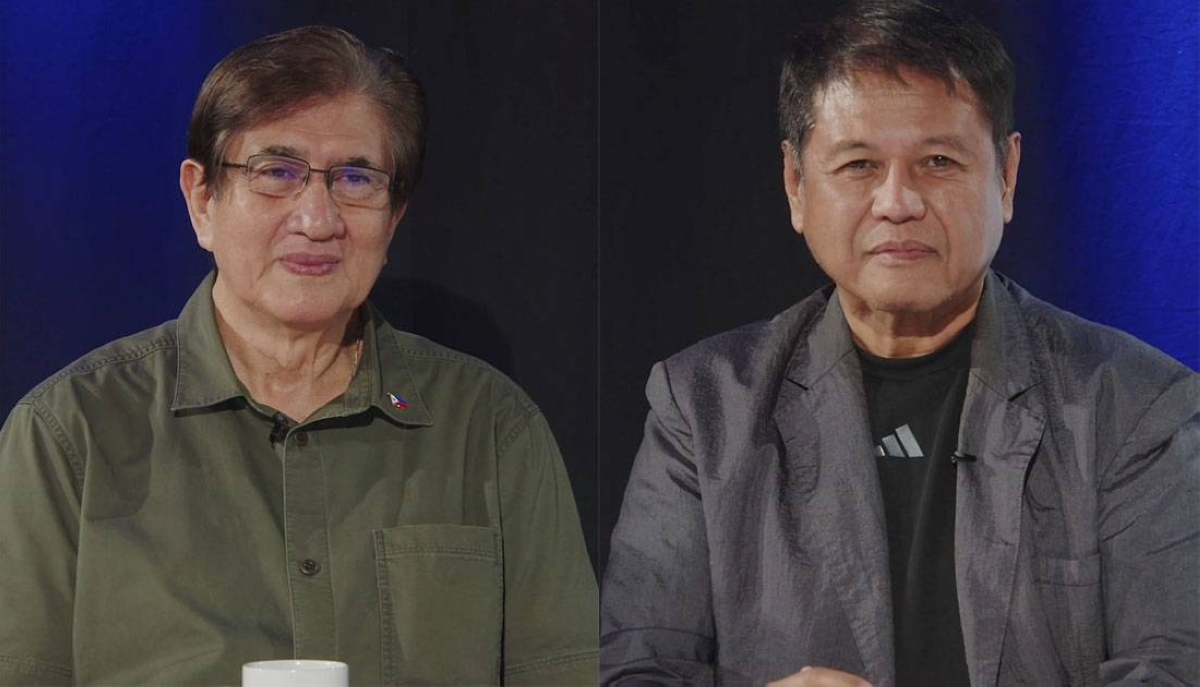Honasan, Verceles tackle digitalization

SENATORIAL candidates former senator Gringo Honasan and Leandro Verceles Jr. agreed that digitalization is one of the country's most pressing yet ignored concerns.
Honasan and Verceles guested at the seventh installment of "Bakit Ikaw," the town hall-style election series co-produced by DZRH and The Manila Times.
The two shared their views on the country's digital future and the obstacles it faces.
For Honasan, the issue is not the technology but the mindset. Drawing from his stint as secretary of the Department of Information and Communications Technology, he described a bureaucracy still unsure of what digitalization even means.
"Faster interventions, cost savings, precision, efficiency — these are the promises of digitalization," Honasan said. "But there's resistance, because people still don't understand it. We must start by educating the government and the public alike."
Verceles, a former congressman and early internet advocate, echoed the sentiment. He said the concept of the internet puzzled even lawmakers, who once asked him if it was a kind of fishnet.
"Some agencies resist digitalization because it minimizes human intervention," he said. "And with fewer humans involved, there's less room for corruption."
Both candidates pointed to budget and political will as the major engines for progress. Honasan emphasized the need for a clear, inclusive national digitalization plan, one that prioritizes the country's "smallest, farthest and poorest" communities.
Verceles preferred a public-private partnership approach. He floated the idea of deploying Elon Musk's Starlink satellite system across the Philippines' 42,046 villages — an ambitious plan with a projected cost of P2.5 billion upfront and P18 billion annually.
"It's not cheap," he admitted, "but it's a worthy investment if we're serious about universal connectivity."
On the question of affordability, both candidates pointed to infrastructure as key.
"Affordable energy and efficient use of towers, cables and satellites will lower internet costs," Honasan said.
Verceles took a more radical stance. "Let's stop pretending this is impossible. Give every barangay plaza free internet via satellites. No middlemen. Just clean, efficient tech funded by the state," he said.
When it comes to cybercrime, both candidates advocated swift legislative adaptation. Honasan stressed the importance of digital education and continuous legal updates.
Verceles was for updating the e-Commerce Act and more agile responses to evolving threats.
"We should be learning from other countries and acting faster," Verceles said.
On the controversial issue of social media regulation, Honasan leaned toward education over restriction, calling for teaching people how to verify information.
"That's more powerful than censorship," he said.
Verceles proposed tighter oversight since "social media is mass media."
"It should be treated and regulated as such — while still protecting free speech," he said.
Asked about data privacy and e-governance, Honasan underscored the importance of data redundancy and management, while Verceles argued for stronger interagency connectivity and refinement of existing laws like the Data Privacy Act.
Both candidates cautiously welcomed 100-percent foreign ownership in public services, but with caveats.
"We can welcome foreign capital, but control must remain Filipino," Honasan said.
Verceles agreed on the potential benefits but issued a challenge to local talent.
"Let's not just be consumers — we must also be creators of technology," he said.
In preparing the workforce for a digital world, Honasan highlighted mobile technology's benefits even to farmers, arguing that digital education must start from the grassroots.
Verceles warned of artificial intelligence (AI)-driven disruption and called for nationwide upskilling.
"AI is already reshaping the workplace. My platform includes personalized, one-on-one education using AI — world-class and scalable," he said.
On helping senior citizens adapt, both candidates brought the discussion back to the home.
"Digital education starts in the household," Honasan said. "Let the youth guide the elderly."
The two agreed on the potential of AI, though with measured optimism.
"AI is just a tool," Honasan said. "What matters is how we use it — with oversight and strong data management."
Verceles was more forward-looking, saying that "with the right guardrails, AI can revolutionize education and improve critical thinking. It's the future — if we prepare for it."
"Bakit Ikaw: The Town Hall Election Series" is a collaborative effort between DZRH and The Manila Times. The program provides a platform for candidates running in the May 12 elections to present their visions, policies and plans.











